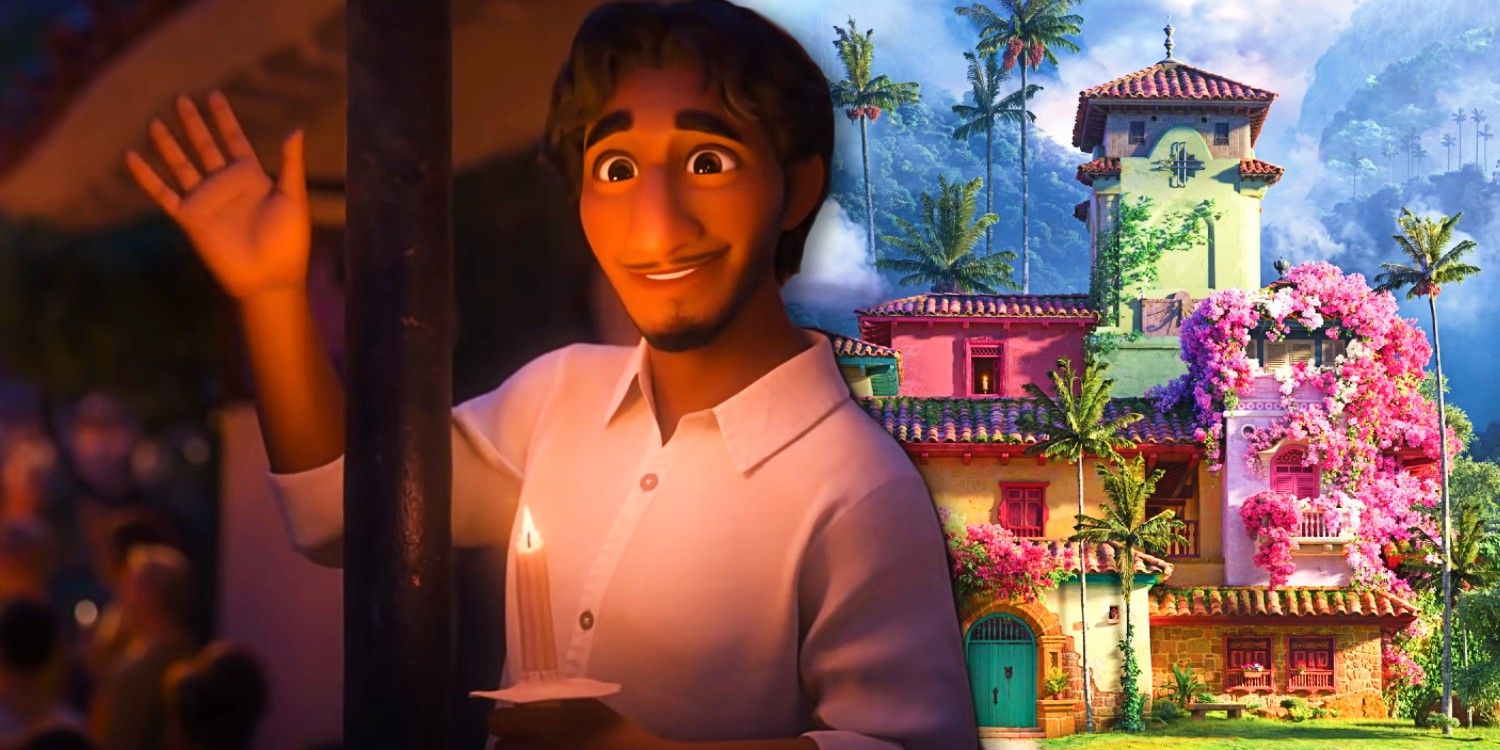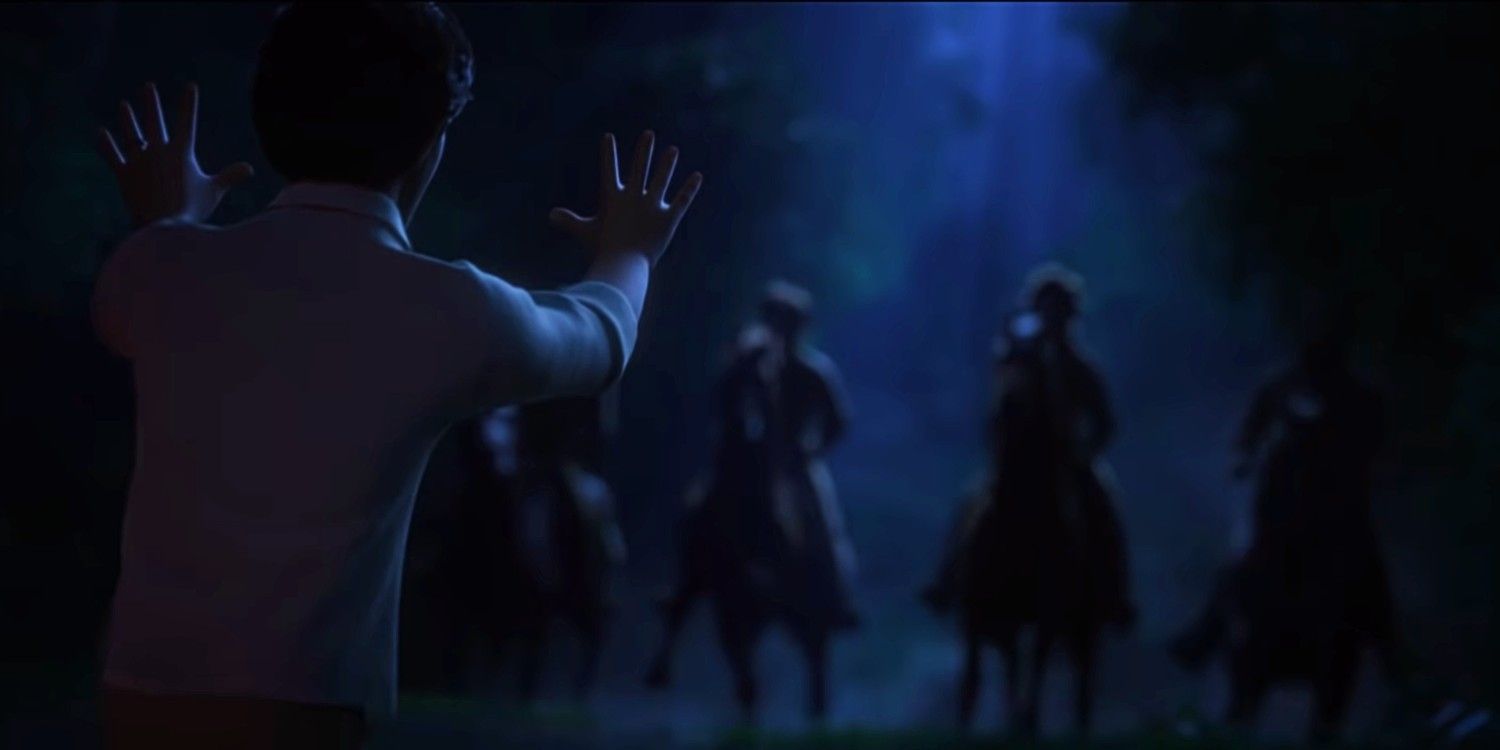WARNING: This article contains spoilers for Disney’s Encanto.
The magical Madrigal house central to Disney’s Encanto may be more than just enchanted architecture—one theory suggests the house may secretly be Abuelo Pedro. While the grandfather patriarch is not present outside of Abuela Alma’s flashbacks, his influence may be greater than is obvious. More than just the spirit behind the animated casita itself, Pedro may be key to the miracle that gives the Madrigal family their powers.
Encanto is a vibrant musical devised in part by Lin-Manuel Miranda. In the film, the family Madrigal is blessed with extraordinary powers from a magic candle in their house. Despite every other blood-relative receiving special abilities, the magic does not vest itself in Mirabel Madrigal, who takes her normalcy in stride, rarely reacting to her family’s criticisms. When Mirabel notices the house falling apart, Abuela Alma insists that everything is fine. However, a fortune by Mirabel’s estranged uncle reveals that the fate of the house and the family’s magic is up to her. Though the house eventually collapses, causing the family to initially blame Mirabel, Abuela Alma recognizes the strain she imposed on the family and, after rebuilding the house by hand, the magic returns.
Where Encanto’s magic originated from is mostly unknown, although it appears to have a direct connection to Abuela Alma’s husband Pedro. When Alma and Pedro were forced to flee their home by armed assailants, Pedro sacrificed himself to protect her, their three infants, and their escaping community. At the moment of his death, the candle Alma possessed exuded great magic, knocking away the assailants, forming a mountainous barrier around the area, and constructing a sentient house for Alma and her children. The magic, it appears, fulfilled Pedro’s goal: to protect and provide for his family. This magic persists, giving powers to each blood family member in order for them to serve their community and live their best lives, as well as giving the Madrigal casita very astute sentience.
Encanto's Madrigal house behaves in a particularly distinct way. It recognizes distinct individuals, knowing each member of the family by name. The house provides assistance to everyone, whether sliding tiles to put away groceries or rippling floorboards to guide people through its halls. This helpful, loving home cannot speak but communicates mainly by waving its windows. This is key to the theory at hand; in flashbacks, Abuelo Pedro did not speak, but primarily waved to Alma, most significantly when they first met. When the casita first forms, its immediate action is to wave welcomingly to Alma, potentially Pedro’s attempt to convey his enduring love. The house appears to have a deep love for each member of the family, especially Alma, and therefore the spirit that inhabits its walls may be Pedro himself.
Some questions do perforate this theory, however. Unlike some other Disney movies, Encanto does not clearly explain its magic in the film. Pedro himself did not possess known magic, and what may have caused his spirit to gain nearly omnipotent powers is purely speculative. Nevertheless, it makes sense that Pedro’s sacrifice for his family would empower the main players in Encanto’s tale of redeeming familial love. The theory that the enchanted casita is secretly Abuelo Pedro Madrigal may not be perfect but, following Encanto’s core moral, neither is anyone else.


